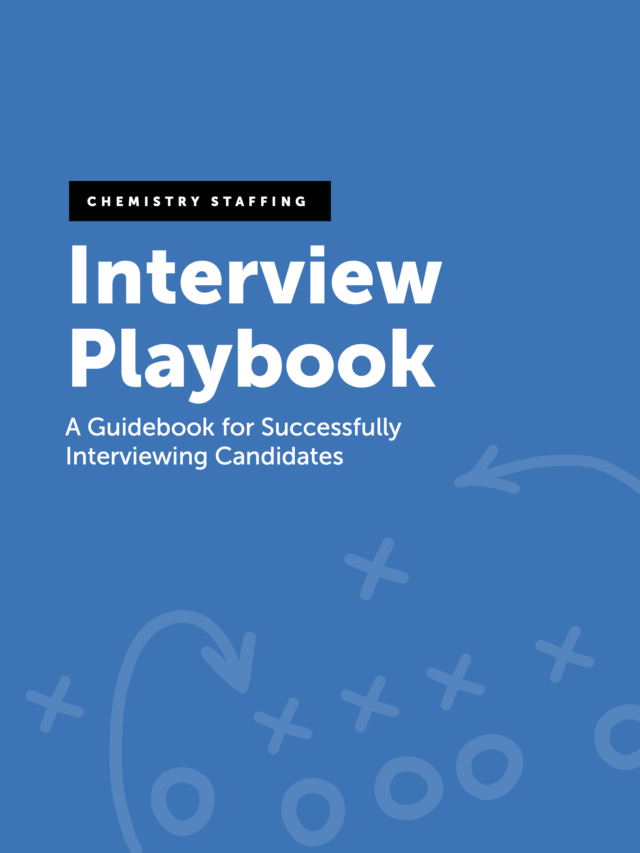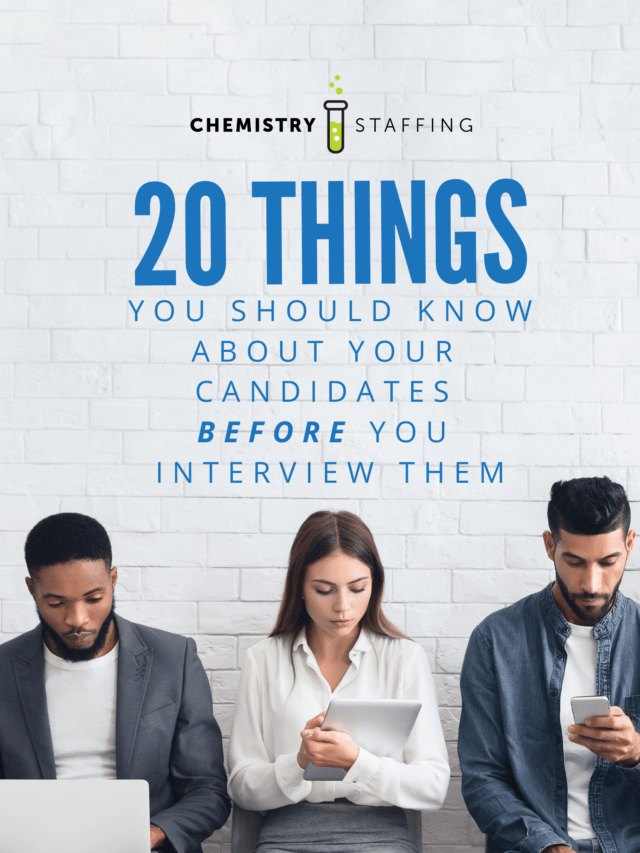
The Interview Process
Now that you’ve identified the individuals you’d like to start a conversation with, we’ll teach you how to use technology and your research skills to prepare for and conduct a series of initial discussions with candidates that may be great healthy, long-term fits for your church. And, just as importantly, we’ll share a simple tool that will help bring consensus and unity to your search team as you evaluate candidates after their interviews.

Key Takeaways
Like everything during your job search process, we encourage you to develop a plan. This is never more important than during the interview stage. Who will you interview? What will you ask? How will your team decide who to move forward in the process and who to eliminate? Here are some key things that we suggest you remember and include in your candidate interviewing process.
That means someone that has the potential to do fruitful and profitable ministry in your church and city for the next five years.
So far, you've filtered each candidate through the five factors of healthy, long-term fit (Theological Alignment, Cultural Competency, Skills and Abilities, Personality, and Chemistry) and identified red, yellow, and green lights through the extensive research and drilling down into each resume.
Now it starts to get real. You've finally done all the work that you need to do to actually start interviewing candidates.
This is where it all starts to come together. And we'll walk you through how to conduct a great series of interviews with your potential candidates.
'Cause it's not.
And it shouldn't be easy.
You are about to make some really heavy decisions. You will need wisdom (you've been praying for that, right?). You will need discernment.
The decisions that you make will affect you, your family, your church, and your community (not to mention the whole reality of your future staff member).
You are hiring a pastor. You are calling a spiritual leader to minister to your church. You will be asking a candidate to uproot their family and potentially move across the country.
If this feels heavy... it should.
But God has you in the position you're in for a reason. And he will give you wisdom to make wise choices.
This is why you need to avoid shortcuts in the process. Shortcuts many times shorten your search time but create a scenario that requires you to start this process all over again in 18-24 months when things don't work out.
Trust the process. Trust God's provision. Trust your team.
The rewards are worth it in the end.
Remember, the purpose of this first interview is not to choose your next staff member. It's too early for that. The real purpose of the first interview is to decide who you would like to CONTINUE the conversation with.
Sometimes sparks don't fly on the first interview. And really... that's ok.
Everybody is very nervous during the first interview. Many times a second conversation can bring out some personality and potential that you would miss if you only talk with them once.
You can learn a lot about a candidate through starting your interview process virtually. You actually get a peak inside their home. NOTE: The backdrop they choose for their virtual job interview with you will tell you a lot about that candidate.
Using technology, you can also record your video interview (ask the candidate for permission) and review it later or share it with other members of your team.
Virtual interviews can also be convenient. They will save you time (no need for all of you to meet in the same room) and money (no air-fares or hotel expenses).
This means they can be scheduled a little more easily. And you can even do two or three interviews in one day if you need to.
Our recommendation: no more than 4 people on the call (the candidate and 3 of you). Use separate locations so that everyone is on equal footing.
PRO TIP: Identify yellow lights you learn during your first interview to formulate questions for your second interview.
You want to hear their story.
How did you come to faith?
How did you meet your spouse?
Tell us about your family.
Get to know them.
Why are you looking for a job now? What's causing you to look?
You can ask some yellow light issues, but try to stick to stories. Stories build relationships.
YOu don't have to dive too deep too early.
And remember to tell your story as well. They want to learn about you too.
Your goal should be to make this very conversational. Make this a discussion, not an interrogation.
Because you've done your homework, you will be able to pull some of the five factors out of their stories... from what they say, and even how they say it.
This will help your team members express how they are feeling about a candidate after the second conversation.
1. I can say an unqualified “yes” to the decision. I am satisfied that the decision is an expression of the wisdom of the group.
2. I find the decision perfectly acceptable.
3. I can live with the decision. I’m not especially enthusiastic about it.
4. I do not fully agree with the decision. However, I do not choose to block the decision. I am willing to support the decision because I trust the wisdom of the group.
5. I do not agree with the decision and feel the need to stand in the way of this decision being accepted.
6. I feel that we have no clear sense of unity in the group. We need to do more work before consensus can be reached.
Limit the number of 4s. (yellow flags)
If you have 5s, there needs to be more conversation.
This tool will help you determine where your team sits and how to move forward.
Be sure each candidate knows what the next step is. (for example... we'll get back with you by Monday, or you'll hear something back from us in the next three days).
At this point in the conversation, an email reject is kind of cold. We recommend following up with a quick phone call to any candidate that you are releasing from the process.
IMPORTANT: For the candidates you release from your consideration, be sure to affirm their calling. Confirm your belief that God has something great in their future, but we just don't feel that this is going to be the right fit for you now. Thank them and wish them well.
Know your church.
We suggest keeping this interview process to a handful of candidates (no more than five... two or three ideally).
Remember... the candidates you are talking to are also probably talking with other churches. It's not uncommon for candidates to be interviewing with multiple churches at once.
Move with as much speed and intention (without rushing) as you can.
Additional Resources
We’ve assembled some great supplemental learning tools that will help you in your search for a healthy, long-term fit for your staff team. All of these exclusive Chemistry Staffing resources are available for free download for you and your search team.
Ask Us Anything...
The interview process starts a different phase of your search. Every church and search team conducts interviews a little differently. We’ve tried to set out some best practices for you to follow. But maybe you still have questions? How can we help?
Your Presenters

Todd Rhoades

Matt Steen
Need help with Getting Started With Your Search Finding Candidates Identifying a Healthy Fit Discovering Your Non-Negotiables Scoring Resumes Making Great Decisions Interview Questions Compensation Packages Your Search Team On-Site Visits Video Interview Strategy Developing Your Benefits Package Onboarding Your New Staff Member ?
As part of the purchase price of this course, you also receive a free 30-minute consultation with one of our Church Coaches at Chemistry Staffing to help you in any area of your search. Need some help finding qualified candidates, sorting resumes, or developing your compensation and benefits package? We’re here to help and guide you in any area of your staff search.

